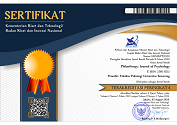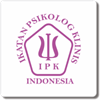The Role of Self-Concept and Self-Compassion on the Body Image Adolescent Fans of K-Pop Idols
Abstract
Keywords: Adolescent, Body Image; K-Pop; Self-compassion; Self-concept
Full Text:
PDFReferences
Agustiani, H. (2009). Psikologi perkembangan: Pendekatan ekologi kaitannya dengan konsep diri dan penyesuaian diri pada remaja. Bandung: Refika Aditama.
Albertson, E. R., Neff, K. D., & Dill-Shackleford, K. E. (2015). Self-compassion and body dissatisfaction in women: A randomized controlled trial of a brief meditation intervention. Mindfulness, 6(3), 444–454. https://doi.org/10.1007/s12671-014-0277-3
Amrizon, N. A., Ifdil, I., Nirwana, H., Zola, N., Fadli, R. P., & Putri, Y. E. (2022). Studi pendahuluan; kecenderungan body dysmorphic disorder (BDD) pada mahasiswa bimbingan dan konseling. Jurnal Konseling dan Pendidikan, 10(1), 87–99. https://doi.org/https://doi.org/10.29210/176900
Arsy, S. N. (2023). Pengaruh konsep diri dan celebrity worship terhadap body image pada penggemar BTS. Jurnal Ilmiah Wahana Pendidikan, 9(11), 553–563.
Azhar, A. (2021). Hubungan antara self concept dengan body image pada remaja. Skripsi. Fakultas Psikologi dan Kesehatan Universitas Islam Negeri Sunan Ampel. http://digilib.uinsa.ac.id/47349/
Azizah, N., & Nugraha, A. (2021). Hubungan antara citra tubuh dengan self compassion pada siswa. Jurnal of Innovative Counseling: Theory, Research & Practice, 5(2), 36–46.
Azwar, S. (2022). Metode penelitian psikologi (Edisi Kedua). Yogyakarta: Pustaka Belajar.
Calhoun, J. F., & Acocella, J. (1990). Psychology of adjustment and human relationship (3rd ed.). McGraw-Hill Publishing Company.
Cash, T. F. (2002). Cognitive-behavioral perspective on body image. In T. F. Cash & T. Pruzinsky (Eds.), Body image: A handbook of theory, research and clinical (pp. 440-449). Guilford Publications.
Cash, T. (2012). Cognitive-behavioral perspectives on body image. Encyclopedia of Body Image and Human Appearance, 1, 334–342. https://doi.org/10.1016/B978-0 12-384925-0.00054-7
Cash, T. ., & Pruzinsky, T. (2002). Understanding body image: Historical and contemporary perspective. In T. F. Cash & T. Pruzinsky (Eds.), Body image: A handbook of theory, research and clinical (pp. 3–12). Guilford Publications.
Cash, T. ., & Smolak, L. (2011). Body image. A handbook of science, practice and prevention. Guilford Publications.
Dinata, R. I., & Pratama, M. (2022). Hubungan antara social comparison dengan body image dewasa awal pengguna media sosial tiktok. Ranah Reserach: Journal of Multidisciplinary Reserach and Development, 4(3), 217–224.
Dwiputeri, L., & Maulina, V. V. R. (2015). Kontribusi body comparison dengan artis k-pop perempuan terhadap body dissatisfaction (Studi pada Remaja Perempuan Indonesia Fans K-Pop). Jurnal Perkotaan, 7(1–2), 58–76. https://doi.org/10.25170/perkotaan.v7i1-2.271
Erismadewi, P. P. A., Swedarma, K. E., & Antari, G. A. A. (2022). Hubungan welas asih diri dengan citra tubuh pada remaja di sma negeri 2 Semarapura. Community of Publishing in Nursing (COPING), 10(1).
Fadilah, N. (2022). Konsep diri remaja putra obesitas di desa singasari kecamatan karanglewas kabupaten banyumas [Uin Prof. K.H. Saifuddin Zuhri Purwokerto]. https://repository.uinsaizu.ac.id/15332/
Fitri, F. (2021). Hubungan antara konsep diri dengan gaya hidup mahasiswa. Jurnal Riset Mahasiswa Bimbingan Dan Konseling, 7(1), 53–62.
Ghufron, M., & Risnawati, N. R. (2016). Teori-teori psikologi. ArRuzz Media.
Hartanti, J. (2018). Konsep Diri Karakteristik Berbagai Usia. Universitas PGRI Adi Buana Surabaya.
Healey, J. (2020). Positive Body Image. In Encyclopedia of Personality and Individual Differences. https://doi.org/10.1007/978-3-319-24612-3_302003
Istikomah, S. (2022). Hubungan antara citra tubuh dengan kepercayaan diri pada penari dance cover k-pop di samarinda. Skripsi. Fakultas Ilmu Sosial dan Ilmu Politik Universitas Mulawarman Samarinda.
Javier, F. (2021). Ada 7,5 miliar twit k-pop pada Juli 2020 - Juni 2021, terbanyak dari indonesia. Tempo. https://data.tempo.co/data/1174/ada-75-miliar-twit-k-pop-pada-juli-2020-juni-2021-terbanyak-dari-indonesia
Kartika, T., & Darminto, E. (2020). Konsep diri remaja ditinjau dari kegemarannya terhadap musik pop Korea (korean pop). Jurnal BK UNESA, 11(4), 540–546.
Levine. (2012). Media influences on female body image. In T. Cash (Ed.), Encyclopedia of Body Image and Human Appearance (pp. 540–546). Elsevier Inc.
Makiko, H. (2022). Pengalaman hidup remaja laki-laki penyuka k-pop yang mengalami celebrity worship. Skripsi. Fakultas Psikologi Universitas Muhammadiyah Surakarta.
Neff, K. D. (2003). Self-compassion: An alternative conceptualization of a healthy attitude toward oneself. Self and Identity, 2, 85–102.
Neff, K. D, & Knox, M. (2017). Self-Compassion. In V. Zeigler-Hill & T. Shackelford (Eds.), Encyclopedia of Personality and Individual Differences. Springer.
Neff, K. D, & Lamb, L. M. (2009). Self-Compassion. In S. Lopez (Ed.), The Encyclopedia of Positive Psychology (pp. 864–867). Blackwell Publishing.
Neff, K, & Germer, C. (2018). The mindful self-compassion workbook: A proven way to accept yourself, build inner strength, and thrive. The Guilford Press.
Neff, Kristin D. (2011). Self-Compassion: The proven power of being kind to yourself. Harper Collins.
Neff, Kristin D., & McGehee, P. (2010). Self-compassion and psychological resilience among adolescents and young adults. Self and Identity, 9(3), 225–240. https://doi.org/10.1080/15298860902979307
Neff, Kristin, & Germer, C. (2017). Neff, K. D. & Germer, C. (2017). Self-Compassion and Psychological Wellbeing. In J. Doty (Ed.).
Niswah, F., & Zahro, E. B. (2021). Internalisasi sosiokultural, korean wave dan kualitas citra tubuh remaja. Prosiding Konferensi Nasional Universitas Nahdlatul Ulama Indonesia, 141–158.
Novianti, R., & Merida, S. C. (2021). Self-concept dengan citra tubuh pada mahasiswi. Psikostudia : Jurnal Psikologi, 10(1). https://doi.org/https://doi.org/10.30872/psikostudia.v10i1.4516
Novida, S. W. (2021). Hubungan Konsep Diri Dengan Citra Tubuh Pada Mahasiswi Uin Ar-Raniry Banda Aceh. Skripsi. Fakultas Psikologi Universitas Islam Negeri AR Raniry Banda Aceh.
Palenzuela-Luis. (2022). International comparison of self-concept, self-perception and lifestyle in adolescents: A systematic review. International Journal of Public Health, 27.
Pervin. (1996). The science of personality. Rutgers Universitas: Jhon Wiley & Sons. Inc.
Pratiwi, M., & Iriani, R. (2023). Body image overview of emerging adult k-pop leaders. Indonesian Journal of Innovation Studies, 21, 1–15.
Rafdinal, W., Juniarti, C., & Ardianti, I. (2023). Perkembangan hallyu di Indonesia. DEWA PUBLISHING.
Rakhmat, J. (2007). Psikologi komunikasi. PT Remaja Rosdakarya.
Repi, A. (2019). Self compassion versus self esteem terhadap pembentukan self-concept remaja: Mana yang lebih baik?. Jurnal Psikologi Talenta, 4(2), 168–181. https://doi.org/http://dx.doi.org/10.26858/talenta.v4i2.8242
Samudra, S. (2022). Hubungan konsep diri dengan kejadian nomopobhia pada remaja di Jawa Timur: A cross sectional study. Skripsi. Sekolah Tinggi Ilmu Kesehatan Hang Tuah Surabaya.
Santika, N. (2022). Deskripsi konsep diri pada remaja di smp muhammadiyah al-kautsar kartasura. Skripsi. Universitas Muhammadiyah Surakarta.
Santika, W., & Bawono, Y. (2022). Ketidakpuasan bentuk tubuh pada remaja perempuan penggemar K-Pop. Gulawentah: Jurnal Studi Sosial, 7(1), 46–55. https://doi.org/https://doi.org/10.25273/gulawentah.v7i1.12125
Saputra, D. (2020). Peran citra tubuh dan konsep diri terhadap perilaku konsumtif dalam membeli kosmetik pada siswi sekolah menengah atas di kota denpasar. Skripsi. Universitas Udayana.
Sari, G. R., Zukhra, R. M., & Dewi, W. N. (2021). Hubungan kepuasan citra tubuh dengan harga diri pada remaja putri yang mengalami overweight. Jurnal Keperawatan Dan Fisioterapi, 4(2), 108–116.
Siregar, S. (2015). Metode penelitian kuantitatif: Dilengkapi perbandingan perhitungan manual & SPSS (Edisi 1). PRENADAMEDIA GROUP.
Slater, A., Varsani, N., & Diedrichs, P. C. (2017). #fitspo or #loveyourself? The impact of fitspiration and self-compassion Instagram images on women’s body image, self-compassion, and mood. Body Image, 22, 87–96. https://doi.org/10.1016/j.bodyim.2017.06.004
Tamalawe, C. G. (2019). Konsep diri pada remaja kelas x di SMA Kristen Dharma Mulya Surabaya. Jurnal Keperawatan, 12(1), 40–48.
Taylor. (2014). The body images workbook for teens. Raincoast Books.
Thøgersen‐Ntoumani, C., Dodos, L. A., Stenling, A., & Ntoumanis, N. (2021). Does self‐compassion help to deal with dietary lapses among overweight and obese adults who pursue weight‐loss goals?. British Journal of Health Psychology, 26(3), 767–788.
Tiara, E. V, & Qodariah, S. (2022). Pengaruh self-compassion terhadap perfectionistic self-presentation remaja akhir pengguna TikTok. Bandung Conference Series: Psychology Science, 2(2), 379–386. https://doi.org/10.29313/bcsps.v2i3.3060
IDN Times. (2019). Jadi Gaya Hidup, Benarkah Fans KPop Kaya Raya atau Cuma Modal Kuota? [Infografis] Mengukur kekuatan ekonomi fans Kpop Indonesia. IDN Times. https://www.idntimes.com/hype/entertainment/danti/jadi-gaya-hidup-benarkah-fans-kpop-kaya-raya-atau-cuma-modal-kuota?page=all
Putri, A. A., Subroto, U. (2023). The effect of intensity of instagram usage on body dissatisfaction in early adult women. Journal of Social and Economics Research, 5(2), 1533–1545. https://idm.or.id/JSER/index.
Utami, R. N. (2019). The relationship between celebrity worship and body image adolescent who idolize k-pop. JOMSIGN: Journal of Multicultural Studies in Guidance and Counseling, 3(2), 137–150. https://doi.org/10.17509/jomsign.v3i2.20963
Wardhani, V. (2022). Turun 16 Kg, Putri Delina bocorkan diet yang terinspirasi dari artis Korea. Merdeka.Com. https://www.merdeka.com/jatim/terinspirasi-dari-artis-korea-putri-delina-bocorkan-diet-santai-yang-dilakoninya.html
Vartanian, L. R., & Hayward, L. E. (2018). Self-concept clarity and body dissatisfaction. Self-Concept Clarity: Perspectives on Assessment, Research, and Applications, 195–218. https://doi.org/10.1007/978-3-319-71547-6_11
DOI: http://dx.doi.org/10.26623/philanthropy.v8i2.9346
Refbacks
- There are currently no refbacks.
Copyright (c) 2024 Anak Agung Istri Miranda Parasari, Luh Made Karisma Sukmayanti Suarya

This work is licensed under a Creative Commons Attribution 4.0 International License.












